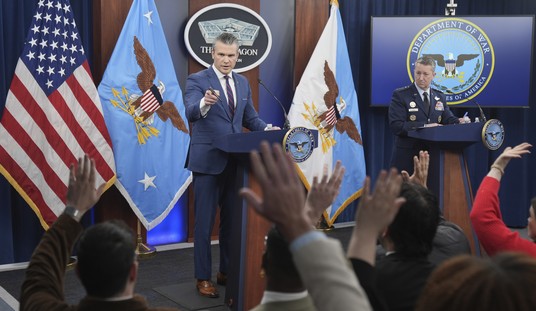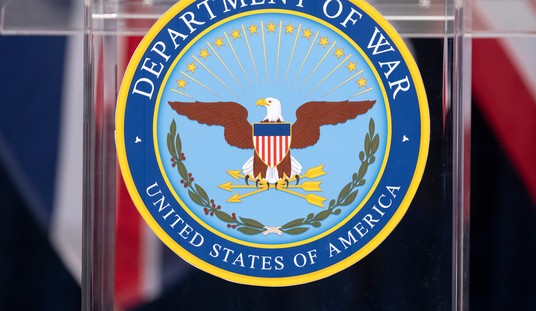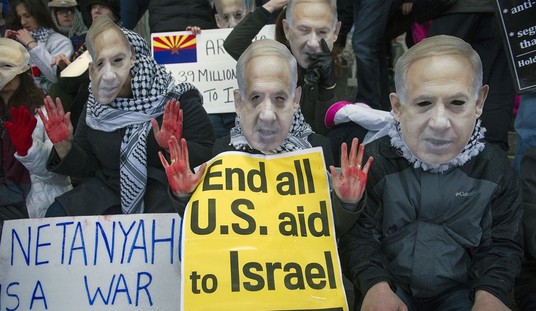Somebody get Jamie Foxx, Sean Penn, and Danny Glover on the phone. Their socialist paradise in Venezuela is collapsing. The currency is so inflated that people are carrying around gym bags full of virtually worthless money. It takes so long to count the money required for basic purchases that merchants are just weighing the money instead.
At a delicatessen counter in eastern Caracas, Humberto Gonzalez removes slices of salty white cheese from his scale and replaces them with a stack of bolivar notes handed over by his customer. The currency is so devalued and each purchase requires so many bills that instead of counting, he weighs them.
“It’s sad,” Gonzalez says. “At this point, I think the cheese is worth more.”
Many are fearful of being robbed because they have to carry so much cash.
Many, like Jose Marcano, a 26-year-old office messenger, find themselves caught in a permanent bottleneck. Marcano spends hours each week depositing his employer’s cash which he carries in black plastic bags on his motorbike. When he can’t make it to an ATM, he flies through stop signs and traffic lights, afraid of getting robbed.
“Carrying this amount of cash is incredibly dangerous,” he said while feeding stacks of bolivars into an ATM. “You put your life at risk.”
The currency itself is in short supply and the government is trying to get more printed—with a lot more zeroes.
Until now, as the bolivar sank, the government declined to print bigger-denomination bills. The 100-bolivar note — the nation’s largest — is worth less than a dime.
A few weeks ago, however, the government quietly asked five currency companies to submit bids for bigger bills — 500, 1000, 5000, 10,000 , and perhaps a 20,000-bolivar note, according to someone with direct knowledge of the order.
Meanwhile food and medicine have become scarce for even for those with the money to purchase it. “Food sovereignty”—an euphemism for socialist agriculture—has put Venezuela on the path to starvation. The government is encouraging people in cities to take up “urban farming.”
“BBC Venezuela report has Chavistas explaining how they’re going to feed people, grow medicine, through urban farming. No, really,” mocked another Twitter user.
When the project was presented in February, the newly created Ministry of Urban Agriculture announced that 12,000 square kilometers — about 4,600 square miles — would be planted in the first 100 days. The government promised to invest $300,000 in seeds, equipment and educational projects, and help with logistics.
The government urged citizens to plant in every available space — private terraces, communal areas, jails and schools among other sites — but did not itself provide the land.
Eight months into the project, only 21 square kilometers (about 8 square miles) of land have been cultivated, according to the ministry.
As people are trying to grow their own food, the government shuts off their water for days at a time because even that is in short supply. Still there are people who are as yet unconvinced that socialism is the cause of their economic crisis. Sounding like Occupy Wall Street or the average millennial Democrat, they parrot the government issued talking points which blame their troubles on capitalism and the United States.
In a slum in west Caracas, 69-year-old Chavez supporter Luisana Galvis and 17 other people cultivate vegetables on shared land.
“We’re doing this to combat the economic warfare so that they can’t have us on our knees again,” said Galvis, echoing the government’s argument that the deep recession is the fault of opposition business leaders and the United States.
Still, there are plenty of people in Venezuela who aren’t happy with their president and protests are starting to turn violent. People are hungry and are rightfully blaming their government. That is a good sign because it could lead to real change, but protesting socialist governments often leads to bloodshed. Things may get very much worse before they get better.














Join the conversation as a VIP Member